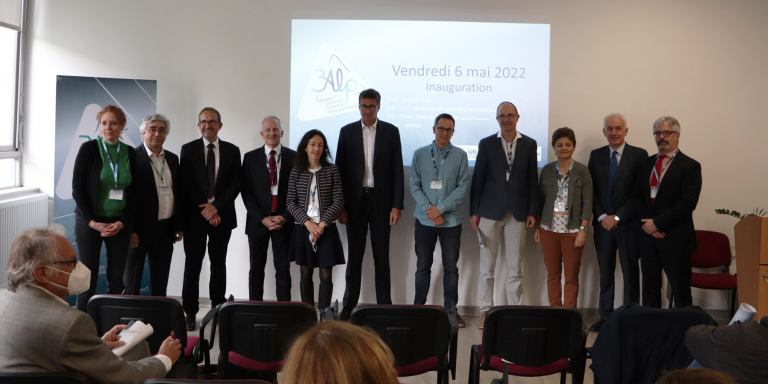
To meet the challenges of sustainable development, all sectors of industry must reduce their environmental impact, while the metallurgy sector is focusing on innovation in alloys and manufacturing processes. The Constellium group, one of the world’s leading suppliers of aluminum products, the CNRS and Grenoble Alpes University have created the joint laboratory 3ALP (Advanced aluminum alloys partnership), which aims to jointly develop research on the recyclability and durability of aluminum, using innovative research methods to create new aluminum-based materials.
In order to be competitive, companies in the metallurgical sector are constantly challenging themselves: they have to produce increasingly resistant parts, find processes that reconcile economy and lesser impact on the environment, particularly for aluminium products for the automotive, aeronautical and packaging industries, for which the Constellium industrial group is one of the world’s leading suppliers.
The Constellium group
The history of Constellium goes back to the creation in 1855 of the company Henri Merle et Compagnie, renamed Pechiney in 1950. Today, the group is headquartered in Paris, has offices in Baltimore and Zurich and employs 12,000 people internationally. It operates 27 manufacturing sites in Europe, North America and China.
The company’s C-TEC technology center in Voreppe, Isère, a U.S. hub in Plymouth, Michigan, and an academic technology center at Brunel University in London, are the source of many advanced aluminum alloys and solutions.
The Constellium Technology Center (C-TEC) is a world-renowned R&D center dedicated to aluminum and its alloys. It has contributed to many innovations in new alloy design, metallurgical states, products, functional applications, processing and enabling processes. Constellium provides state-of-the-art resources to the team of international scientists and technicians it hosts. In addition, C-TEC has a high-level international academic network.
Ludovic Piquier, senior vice president, operational excellence and CTO, states:
“I am very proud to support the opening of this joint laboratory, and I thank all those who have made this achievement possible, and first and foremost our partners, UGA and CNRS. This laboratory will allow us to continue exploring the potential of aluminum, a material of the future for the circular economy of tomorrow.”
The joint laboratory 3ALP
Constellium and the CNRS have joined forces with the Université Grenoble Alpes (UGA) to create this joint laboratory.
Industrial collaborations are part of the DNA of Grenoble INP – UGA, the engineering and management institute of Grenoble Alpes University. SIMAP, the Materials and Processes Science and Engineering Laboratory, which is based at Grenoble INP – Phelma, UGA, was created in 2007 from the merger of three research units from CNRS, Grenoble INP, and UGA.
The 3ALP joint laboratory is the result of more than 40 years of collaboration between SIMAP and C-TEC. It will draw on SIMAP’s expertise in the design of metal alloys and innovative processes such as additive manufacturing (a set of processes used to manufacture a physical object, layer by layer, by adding material to a digital object). It aims to meet the challenge of the industry of the future: sustainable development, particularly with the extension of the recyclability of aluminum to all its applications.
Constellium will have access to state-of-the-art modeling and characterization tools, particularly in connection with synchrotron radiation, and will benefit from the experience of SIMAP scientists in various fields: study of the structural and mechanical characteristics of materials, instrumental design and implementation, development of artificial intelligence tools for materials.
Antoine Petit, President and CEO of CNRS, comments:
“I am delighted with this partnership with Constellium, which is part of a long history of cooperation. We are pursuing a constant policy of developing joint laboratories with companies of all sizes, as confirmed by the more than 200 joint laboratories already in existence. This ambitious form of collaboration between business and academia is based on fundamental research to provide an answer to major industrial challenges. Our ambition is to have 400 joint laboratories in operation within four years.
The Auvergne-Rhône-Alpes region, which has more than 40 joint laboratories, leads the French regions in terms of strengthened collaboration between research and business. Nearly a quarter of these are monitored and run by the CNRS Alps delegation.
Translated from Le CNRS, Constellium et l’Université Grenoble Alpes s’associent pour créer un laboratoire commun dédié à l’aluminium du futur









